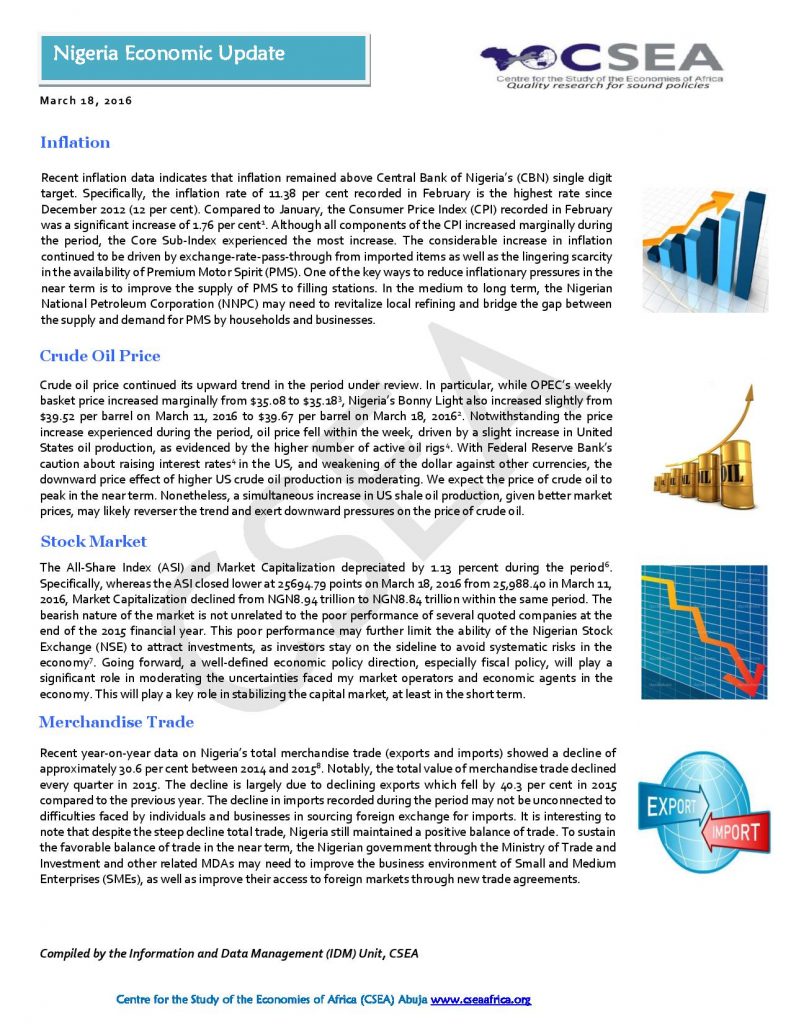Macroeconomic Report & Economic Updates

May 20, 2016
Nigeria Economic Update (Issue 21)
Recent
data from the National Bureau of Statistics (NBS) shows that the value of
capital imported to Nigeria declined by 54.34 percent; from $1.56 billion
2015Q4to $710.97 million in 2016Q11. This is the lowest value since
the data was first released in 2007. Huge declines in Portfolio Investment
(71.54 percent) and other Investment (44.84 percent) were the major drivers of
the trend within the period. A myriad of factors have contributed to the
decline in investments. The plunge in crude oil prices, and the resultant negative
signals on investors confidence, was a key factor. This was exacerbated by the
FOREX restrictions and delays in the assentation of 2016 Appropriation Bill.
While the slight increases in oil prices and the recent signing of the budget
into law could improve the general economic prospects, monetary authorities need
to proffer solutions to the negative effects of the current FOREX restrictions
on investments.
